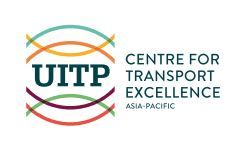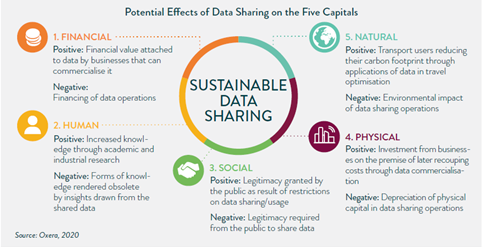

Data sharing in public transport: UITP recommends a framework for sustainable practice
Times are changing and so is how we share data
For the transport sector, sharing data is incredibly important because of how outcomes can benefit the wider population. It can unlock new insights and develop more efficient processes and new products to meet society’s ever-changing needs.
In 2020, UITP release the Report, Sharing of data in public transport: Value, governance and sustainability. The Report was the results of pioneering research from UITP’s Asia-Pacific Centre for Transport Excellence, co-funded by the Land Transport Authority (LTA) and conducted in partnership with Oxera Consulting LLP. The study looked deeper into the current state of data sharing in public transport and discussed guidelines and recommendations for organisations that wish to understand the benefits of, and best practices in, data sharing.
Since then, the world has changed immensely. COVID-19 has brought unprecedented changes to the way we live. For the public transport sector, cities have been challenged to restart operations under unpredictable social impacts and volatile passenger confidence. The need for public transport stakeholders to proactively work together has become ever stronger.
With this comes the challenge of data sharing and doing so sustainably. Of course, there is no one-size-fits-all approach, and policy makers and organisations will need to collaborate to develop a flexible framework in extracting valuable information that can deliver a wider range of benefits to society.
Sounds simple, right…?
UITP has yet again done the groundwork
Data sharing does not mean that all data should be available nor available for free. Rather, the sharing of such information should be assessed from the perspective of sustainability and value creation. We know that this is no easy task and so UITP has created the foundations.
UITP’s Policy Brief, A framework for sustainable data sharing in public transport, provides policy makers, transport planners and operators, mobility service providers and research institutions with a framework to analyse the value and principles needed to create sustainable models for data sharing.
The publication guides readers on the valuation process for data sharing, outlines a clear framework for the data strategy and data sharing business models. The framework may not be a step-by-step process as it should accommodate agility whereby organisations should continually review and refine each component.
The sector is still at the beginning of its journey: Are we ready for a data sharing culture?
A data sharing culture is nurtured in an environment with strong leaders.
This does not mean a culture advocating for data sharing at any costs and in every situation, but where people have a ‘data as an opportunity’ mindset, whereby continuous improvements unlock the potential for value creation for the end-users. Such a culture requires data leadership, trust and data literacy within organisations.
While there is a long way to go for the sector, data sharing is already enhancing mobility in certain cases.
The case of LTA in Singapore…
The Public Transport Authority, LTA, has a mission to be a data-driven agency by defining clear roles and responsibilities that proactively build its capacity in data management and assigned responsibility to ‘Data Custodians’ and ‘Data Trustees’. In doing so implements resources towards continuous improvement and the data sharing strategy remains central to decision making.
The roles of public transport authorities are diversifying. Understanding data and improving data literacy are essential skills to regulate and plan public transport services in the digital era.
Bringing net positive value for mobility for life
The data sharing ecosystem achieves sustainability when the process brings net positive value across all stakeholders.

Successful and sustainable cities need to have an efficient mass public transport system. The COVID-19 pandemic undoubtedly brought many challenges, but it also presented an opportunity to move towards better data-sharing practices for the public transport sector to remain competitive, relevant and agile.
UITP has been advocating for ‘Mobility for Life’ to encourage international decision makers to advance with innovative, sustainable and multimodal collective mobility services. Data is one of the crucial enablers for the public transport sector to lead on innovation and digitalisation, effectively benefiting citizens.

Data sharing will be a central topic of discussion at the next IT TRANS event in March 2022…
A leading international conference and exhibition focused on IT solutions for public transport, IT TRANS is not one to be missed! Since 2008, it brings together decision makers and industry experts to exchange, discuss and develop digital solutions.
2025 Training Calendar








